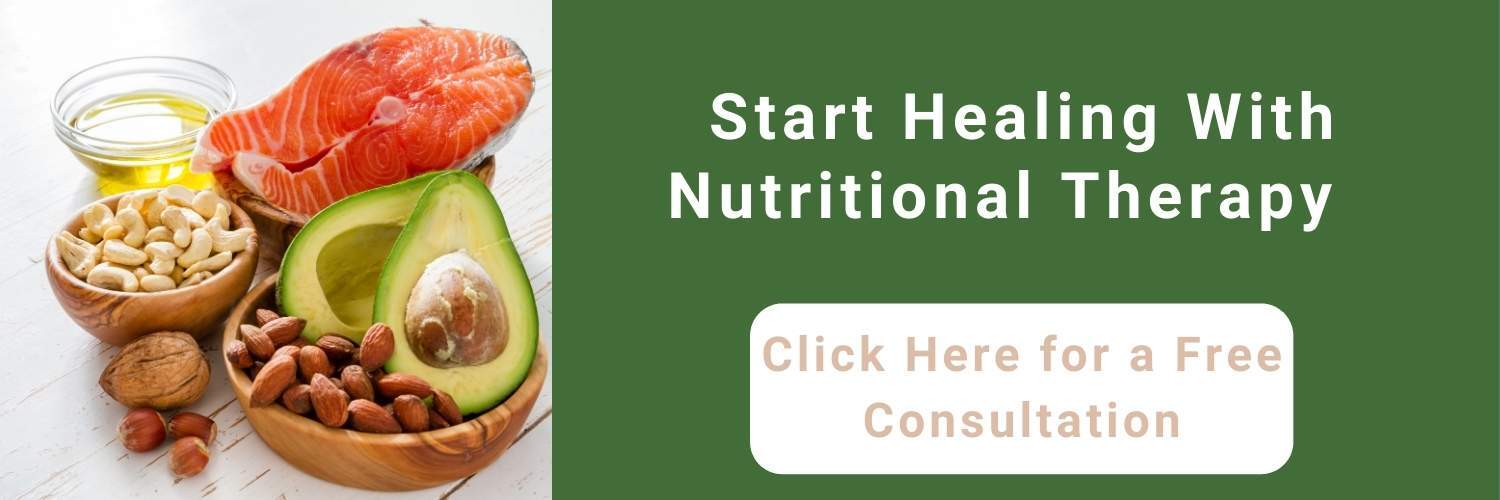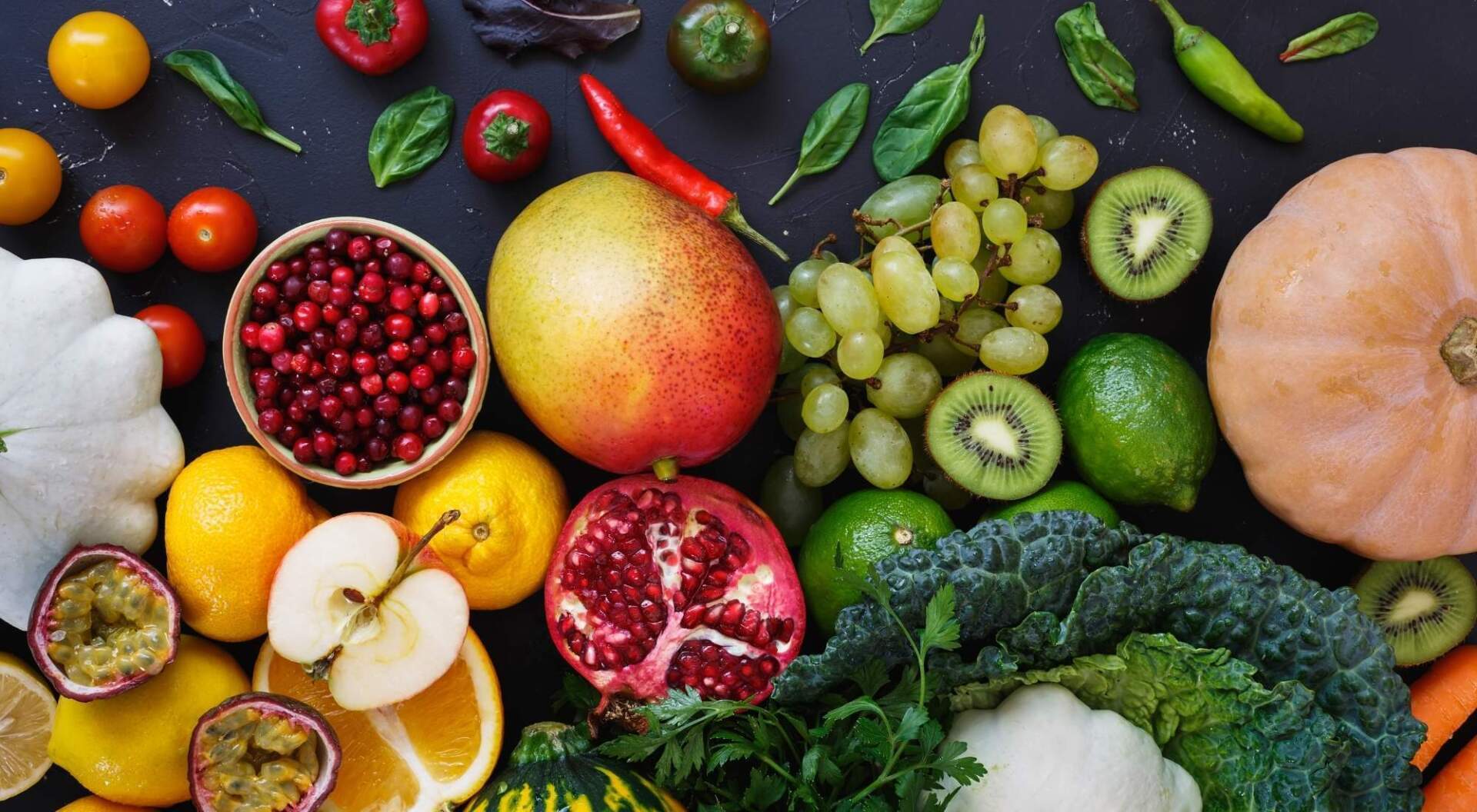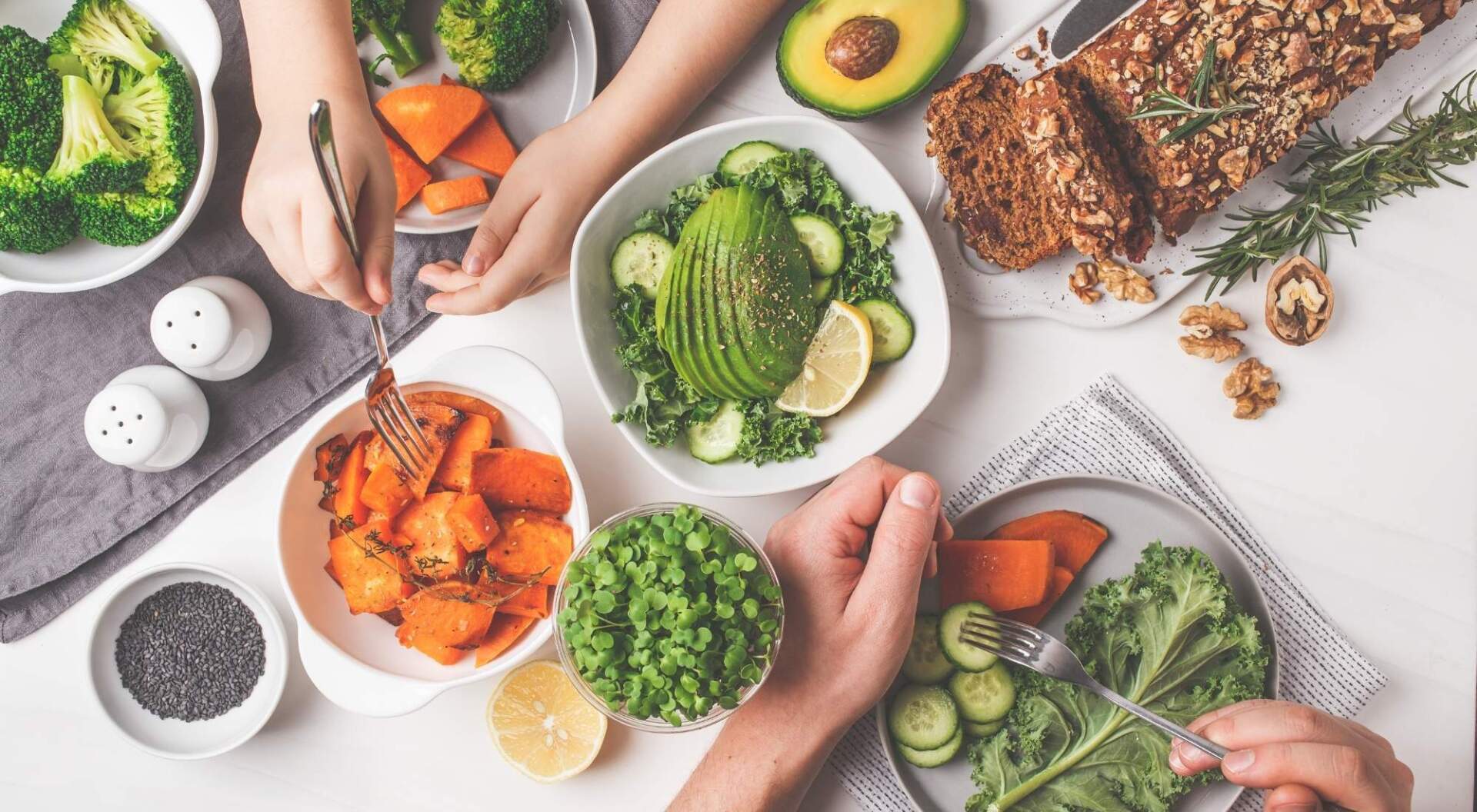How to Treat Gluten Intolerance Naturally
"The content below is not intended to be a substitute for professional medical advice, diagnosis, or treatment. Always seek the advice of your physician or other qualified health provider with any questions you may have regarding a medical condition."
You went out to a restaurant for dinner, and while you did your best to steer clear of gluten with your order, by the time the check arrives, you’re struggling with stomach pain and excusing yourself to use the restroom more than is socially acceptable.
You think you’ve been “glutened,” and all you want is to feel better.
Reactions to gluten vary significantly for those with celiac disease, gluten sensitivity, and gluten intolerance. But there’s hope for relief.
This guide will provide you with a variety of home remedies for gluten intolerance.
Table of Contents
What is Gluten Intolerance?
Gluten is a group of proteins found in many grains, including:
- Wheat
- Rye
- Barley
- Triticale (a cross between rye and barley)
Gluten is what helps foods maintain their shape, acting as a glue and holding them together.
Some people’s bodies react negatively to gluten.
While different from celiac disease (an autoimmune reaction to gluten), an estimated 18 million Americans suffer from gluten intolerance (also called gluten sensitivity).
If you feel poorly after eating a big bowl of pasta, cereal, a sandwich, etc., you might want to explore nutritional therapy. Nutritional therapy is an excellent tool for identifying and treating gluten intolerance.
You’ll need a Nutrition Response Practitioner to get to the bottom of your suffering and begin the journey to healing. Dr.Donna Sergi and the team at HealthierU are experts in this area, with decades of experience helping their patients get well and stay healthy naturally, with nutrition and lifestyle guidance.
HealthierU can help you determine if you suffer from gluten intolerance or if something else is ailing you.
Gluten Intolerance Symptoms
How do you know if you have a gluten intolerance?
Nutrition Response Testing with Dr. Donna Sergi is the best way to determine exactly what’s happening with your body.
However, those with gluten intolerance typically experience some or all of the following symptoms after consuming gluten:
- Abdominal pain
- Bloating
- Diarrhea
- Headaches
- Fatigue
- Depression
- Brain fog
- Anxiety
- Iron deficiencyJ
- Joint and muscle pain
13 Natural Remedies for Gluten Reaction
You’ve made the mistake of eating gluten. The all-too-familiar pain is setting in, and you are kicking yourself for not reading the ingredients list on that pre-made smoothie.
Let’s learn 13 ways to naturally help provide gluten intolerance relief after exposure:
- Rest
- Activated charcoal
- Digestive enzymes supplements
- Water
- Intermittent fasting
- Ginger
- Turmeric
- Omega-3
- Probiotics
- Apple cider vinegar
- Marshmallow root
- Epsom bath
- Whole foods
Some of these natural remedies are lifestyle choices or things you can do (rest, hydration, intermittent fasting). The remainders are supplements or natural ingredients to consume. You can find most of these products at your local grocery store, health food store, or online.
#1: Rest
After accidental gluten exposure, you’ll want to try and get as much sleep as possible. After all, fatigue is a common symptom of a gluten reaction. Rest is an essential ingredient when it comes to healing our bodies.
#2 Activated Charcoal
Activated charcoal is a fine, odorless black powder with toxin absorbing properties. It is often used in emergency rooms to treat overdoses or poisonings.
After a gluten reaction, activated charcoal can help to reduce gas and bloating.
Activated charcoal is most effective when taken immediately after gluten exposure. When this is done, it can bind to the toxin (in this case, gluten) and prevent it from being absorbed into the body.
#3: Digestive Enzymes Supplements
Digestive enzymes help to break down the food that you eat.
When it comes to gluten intolerance, the idea is that some digestive enzymes break down gluten enough that it has less of a (negative) effect on those who have difficulty with the protein.
A 2017 study found an enzyme called aspergillus niger-derived prolyl endoprotease (AN-PEP) may stop gluten from entering the small intensive, therefore reducing symptoms in patients with gluten intolerance.
#4: Water
If you’ve been “glutened,” it’s essential to hydrate. Drinking water helps to flush out your system and help your body recover. Hydrating helps your kidneys in cleansing and eliminating gluten from your body.
Additionally, because exposure to gluten can cause vomiting and/or diarrhea, it is important to replace lost fluids and avoid dehydration. Aim for a minimum of 64 ounces each day.
#5: Intermittent Fasting
Intermittent fasting is an eating pattern that cycles between fasting periods (either no food consumption at all or restricted calorie consumption) and periods of unrestricted eating.
You might be wondering, “What does this have to do with accidental gluten exposure?”
When you have long periods between meal times, it gives your gut and GI tract more time to heal and recover.
#6: Ginger
Ginger is a plant. Its root has been used to treat health conditions and ailments for hundreds of years.
After ingesting gluten, ginger can help ease some of the symptoms you might be experiencing. Ginger is ideal for settling an uneasy stomach and helping with cramping.
There are several ways to incorporate ginger into your diet, including:
- Ginger tea
- Ginger extract
- Ginger drops/lozenges
- Ginger supplements
#7: Turmeric
While a key ingredient in your favorite Indian dish, turmeric is also a natural anti-inflammatory and antioxidant. Turmeric is known to ease stomach cramping, bloating, and nausea that can occur after gluten consumption.
Taking a spoonful from your spice cabinet may not be appealing (or incredibly effective), so try turmeric supplement capsules from your local health food store.
#8: Omega-3
Omega-3, or omega-3 fatty acids , are fats found in plants and fish such as:
- Trout
- Salmon
- Mackerel
- Tuna
- Herring
- Sardines
In addition to eating these fish, taking a fish oil supplement is a good way to take advantage of the omega-3 benefits.
Omega-3 fatty acids in fish oils are known to help prevent heart disease and stroke.
When it comes to gluten intolerance , fish oil may also help coat the lining of the small intestine, potentially reducing the risk for inflammation if gluten is consumed.#9: Probiotics
After initial symptoms following a gluten flare-up have eased, you might consider reaching for a probiotic. Taking probiotics is important in promoting the growth of good gut bacteria and supporting digestion.
This is important because when the digestive tract is healthy, it can filter out and eliminate toxins and harmful bacteria.
#10: Apple Cider Vinegar
For centuries, apple cider vinegar has been a popular home remedy.
We know gluten can cause bloating and digestive issues in people with gluten intolerance. Apple cider vinegar can be used to reduce inflammation, ease digestion, and eliminate toxins.
Make sure to select raw, organic, unpasteurized apple cider vinegar. The pasteurization process can destroy some of the added health benefits of apple cider vinegar.
#11: Marshmallow Root
Marshmallow root comes from the marshmallow plant. It is known for its medicinal properties. The mucilage of the plant contains antioxidants.
Some research suggests it can form a coating over the digestive tract, helping ease GI issues — such as a gluten intolerance.
#12 Epsom Bath
One way to detox after accidental gluten exposure ...
… is to draw yourself a bath.
But be sure to use Epsom salt. In addition to relaxing you, it will stimulate your lymphatic and immune systems.
#13 Whole Foods
After you’ve been ‘glutened,’ you may be hesitant to eat any sort of processed food for fear of it happening again.
When your body is healing from accidental gluten consumption, you might want to stick to a diet of whole foods (fruit, vegetables, eggs, meat, etc.) as you recover.
How Can a Nutritional Therapy Practitioner Help With Gluten Intolerance Relief?
No one wants to suffer from severe abdominal pain, bloating, or joint pain. That’s why you’re careful about each and every thing that you eat. But let’s face it, accidental gluten exposure happens.
You need gluten intolerance relief. You need it now. Working with a licensed and reputable nutritional therapy practitioner can help you avoid these gluten attacks through holistic nutrition guidance.
Nutrition Response Testing
If you think you might have a gluten intolerance, Nutrition Response Testing is exactly what you need.
Nutrition Response Testing is a form of nutritional therapy that is used to discover the root cause of health-related symptoms so that your holistic health nutritionist can create a plan to alleviate them.
By analyzing the body’s state of health using Nutrition Response Testing, a holistic nutritionist can create a health plan that is designed to help your body repair itself through proper nutrition.
This is done by conducting a series of non-invasive muscle tests and recording a comprehensive health history of the patient.
Nutrition Response Testing is a highly scientific and clinically proven method of determining the underlying cause of many health conditions, including:
- Hormonal imbalances
- Digestive Issues
- Thyroid problems
- Candida
- Weight problems
- And more
How Nutrition Response Testing Can Help Your Gluten Intolerance
Nutrition response testing is tailored specifically to your body and your needs.
Your initial assessment will be like a non-invasive discovery meeting for your organs.
Your doctor will work to identify the ones that aren’t functioning properly, and are likely the root cause of your symptoms, by monitoring the strength of a specific reflex while in contact with them.
How strong your reflex is is a direct reflection of the health of the corresponding organ in your body.
When you have a ...
- Food sensitivity
- Nutrient deficiency; or
- Toxic substance
… your organs become weakened, and your doctor will be able to see that in your neurologic reflex.
At HealthierU, you’ll be tested for common food sensitivities, including :
- Gluten
- Wheat
- Eggs
- Milk
As wells as immune-compromising properties like:
- Bacteria
- Fungi
- Viruses
- Parasites
- Mold
Once we identify what is and is not agreeing with your body, you’ll be guided through a program designed specifically for you and your needs that includes ...
- Nutrition
- Whole food supplementation; and
- Lifestyle recommendations
… that will help your body to heal itself.
Most patients who adhere to their programs can begin noticing positive changes within just 4-6 weeks.
There’s no reason to suffer through the pain. There’s no reason to waste hours in the bathroom. There’s no reason not to start healing today.
Schedule your complimentary consultation with Dr. Donna Sergi before that next gluten attack and see what Nutritional Response Testing can do for you.






